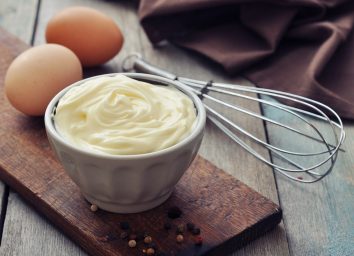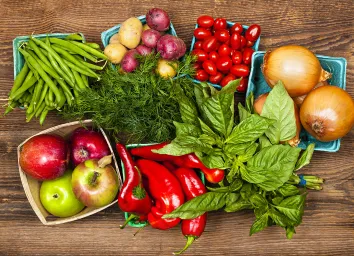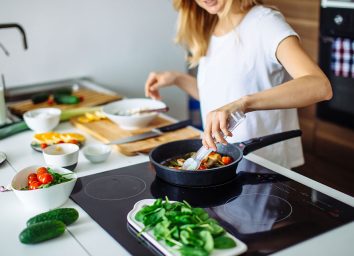8 Cooking Mistakes That Are Making You Gain Weight
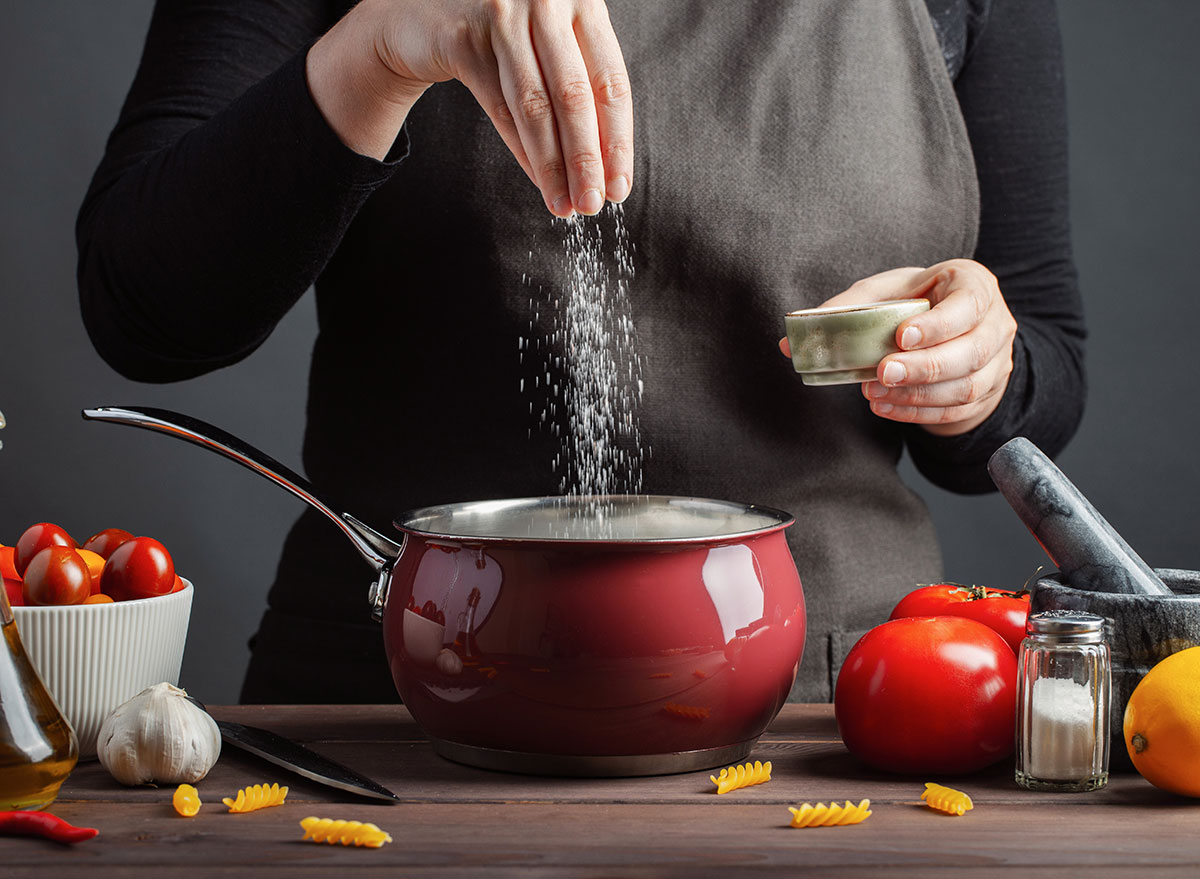
Cooking at home offers tons of health benefits that make the extra effort worthwhile; not only does it give you complete control over what you eat and what goes into your body, it also lets you get a little creative and play chef. But oftentimes, you may just end up removing nutrients or adding calories without knowing it, making those home-cooked meals far less healthful than you think they are.
It’s important to be aware of how you’re cooking just as much as what you’re cooking in order to reap the maximum positive benefits from every meal. Here are some of the most common cooking mistakes in the kitchen that can adversely affect your health and, in some cases, conteract your efforts to lose weight. So that way you can cook with confidence, knowing you’re feasting on a truly healthy meal!
Mistake: Using Too Much Oil
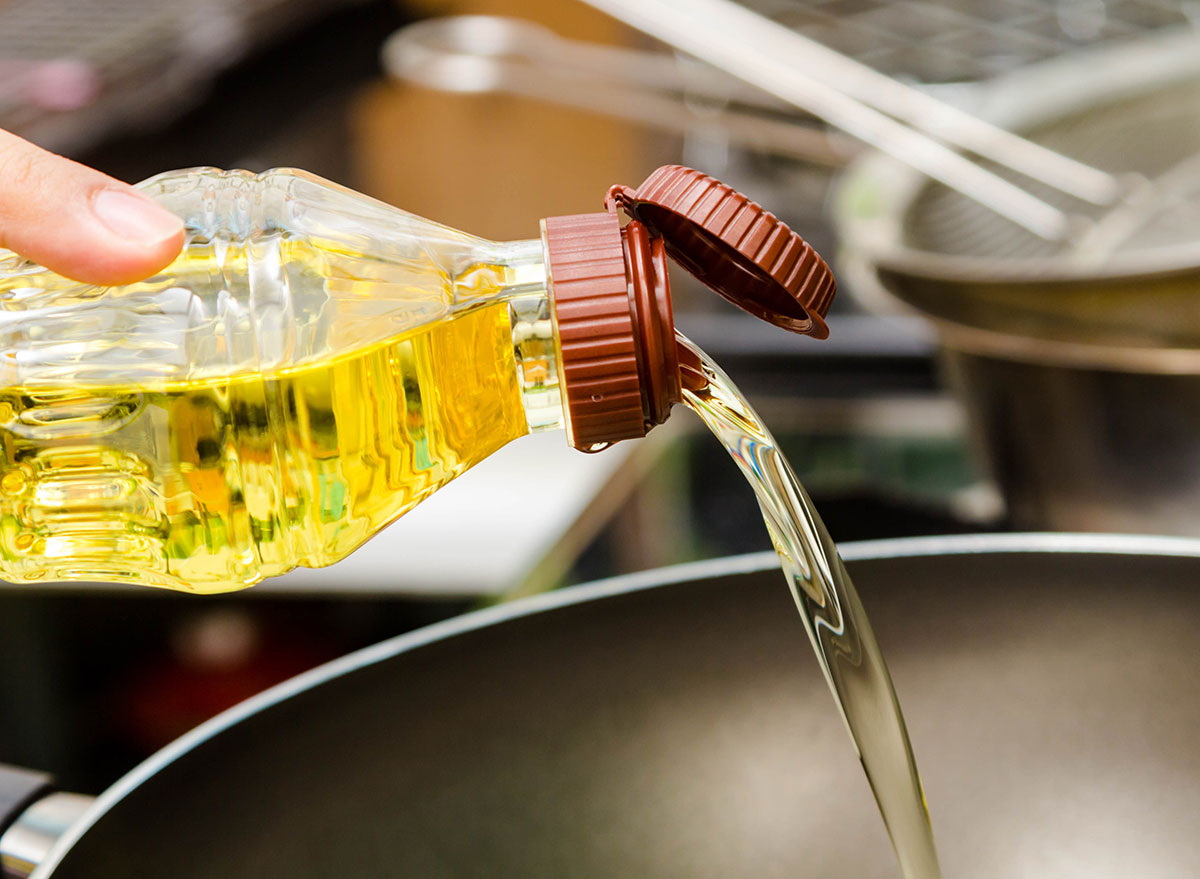
Most recipes call for cooking oil, which can actually be a good thing; many oils have positive health benefits. A study published in the New England Journal of Medicine found a correlation between consuming olive oil and a healthy heart. But the key to using any oil well is moderation; it’s important to measure out just what you need in order to avoid over-using the highly caloric ingredient. In fact, while one tablespoon of olive oil packs about 120 calories, it’s easy to pour far more than that into your sauté pan without realizing it. Avoid the “just a drizzle” mentality, and break out that tablespoon every time you cook. That one extra step could save you hundreds of calories.
Looking for more helpful tips? Be sure to sign up for our newsletter to get daily recipes and food news in your inbox!
Mistake: Stewing, Parching or Frying Your Food
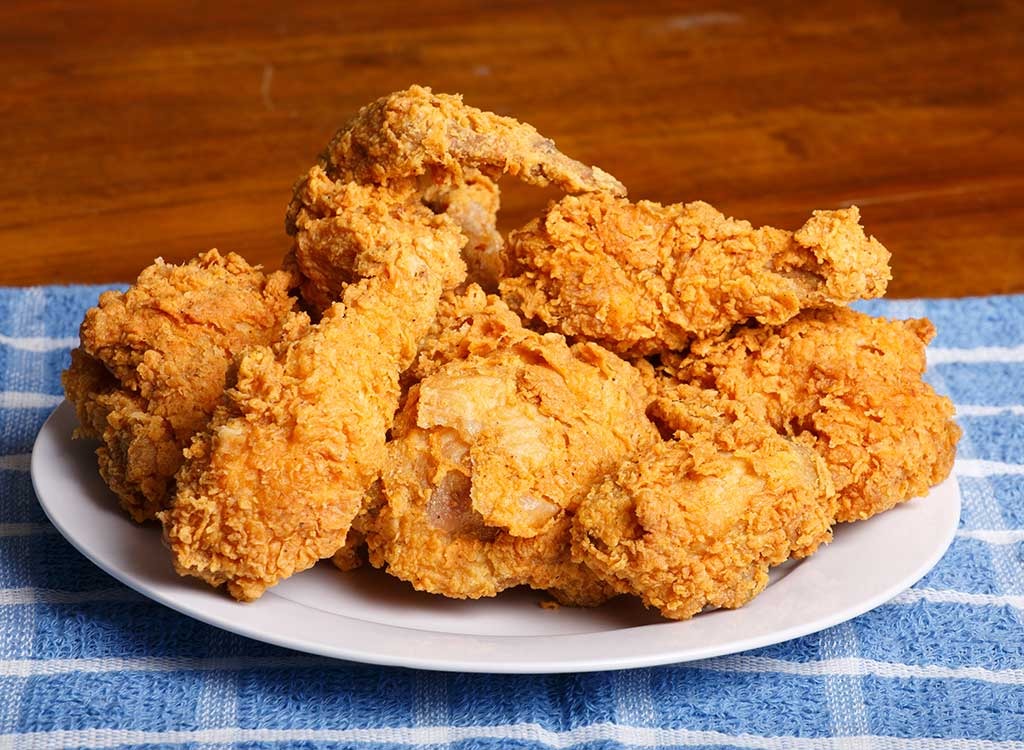
Just like watching how long your veggies are on the stovetop, it’s important to know which cooking methods take some of the nutritious goodness out of your dinner. When you fry, roast or stew foods, many important minerals like potassium, manganese, and calcium are stripped, according to a Journal of Nutritional Science and Vitaminology study. Frying foods in particular ups the calories and saturated fat in your meal, making it hard to keep your diet on track. (Sorry folks, foods fried at home are hardly better than foods fried at your favorite restaurant.) As an alternative, try steaming that chicken or fish to keep those nutrients in and boost the flavor with your spice rack. Many savory spices boast health benefits of their own, in addition to bringing some serious heat and zest to your menu.
Mistake: Grilling Meat for Too Long
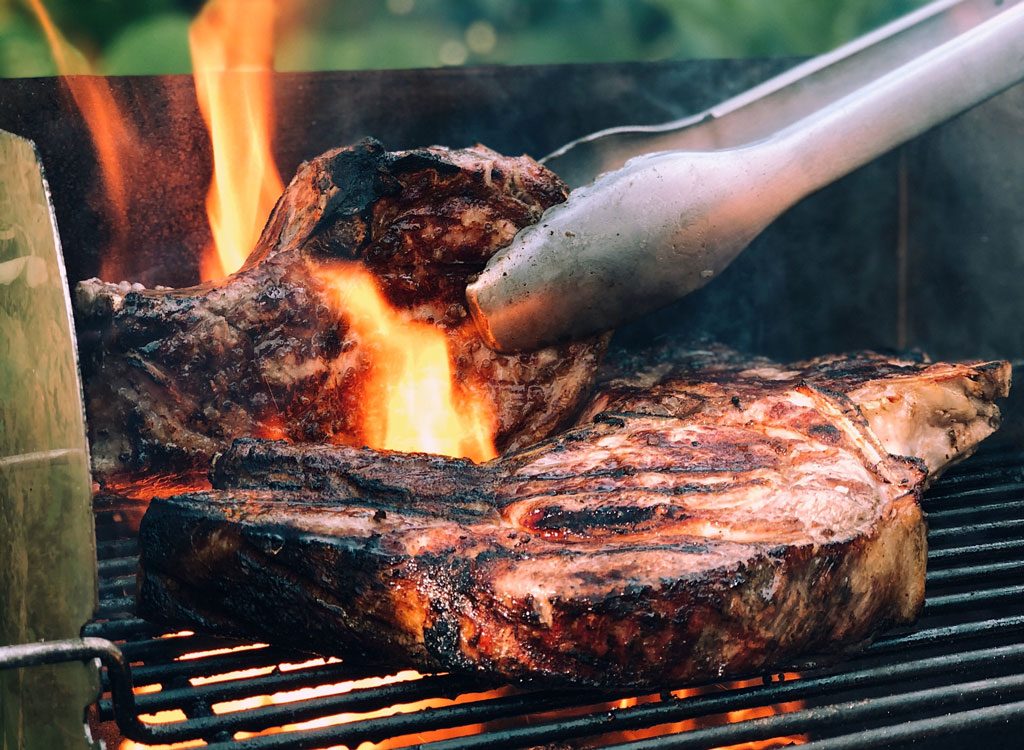
There’s something particularly delicious about a char-grilled steak, but also something sinister. While there are no fatty oils used (which is great), a study published in the Journal of Epidemiology found that subjects who consumed higher amounts of charred meat had as much as a 47% increased risk of postmenopausal breast cancer than those who stayed away from the grilled or smoked varieties. With so many fantastic seasonings available these days, it’s never been easier to satisfy your burger cravings without turning on the charcoal barbecue. All isn’t lost, cookout lovers! If you really love seeing those grill lines, you can sear your meat on the grill just long enough to get that signature mark before finishing the cooking process in the oven.
Mistake: Relying on Salt and Fat for Flavor
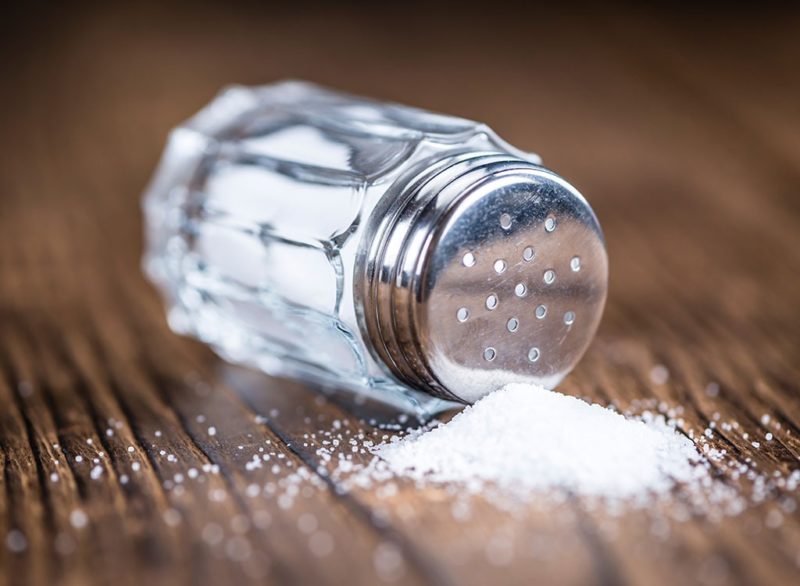
When cooking at home, taste is important—that’s what’s going to keep you cooking at home instead of turning to fast food! But you have to be careful about adding too much fat and salt as a way of upping the flavor content because it can lead to a big fat addiction. Yes, salt addiction is a thing! A study in Oxford Journal’s Nephrology Dialysis Transplantation found that salt addiction is processed by the hypothalamus, similar to how alcohol, cocaine, and opiate addictions are developed and interpreted. Yikes.
You’re not safe if you’re careful with the salt shaker, either. Salt, sugar, and fat are “mutually reinforcing” addictive compounds, according to a study from the Food Addiction Institute. These three diet derailers trick the reward center of your brain into thinking they’re better than they are. In other words, when you add excessive amounts of salt and butter to those roasted veggies, the combination can keep you coming back for far more servings than you actually need (and you know you’re adding that duo to foods way worse than veggies).
Mistake: Choosing the Wrong Sauces
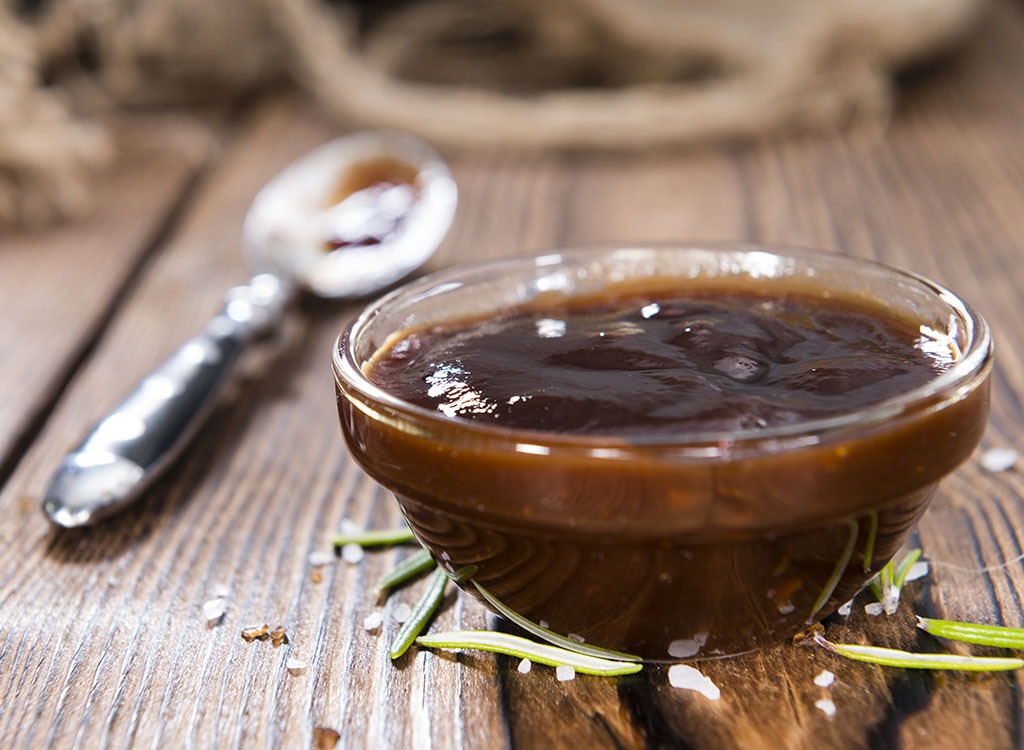
Marinades can be a home cook’s saving grace; they’re quick, easy, and infuse your food with flavor overnight. But if you’re relying on a bottled brand to give your food a boost, you might be adding way more than flavor. Take a look at that nutrition label on the bottle of marinade you bought at the grocery store and pay special attention to the sugar and sodium levels in each serving. If it’s too high in salt or sugar, give it the boot. Not only can sugar cause cavities (your dentist will be none too pleased) but, as one Harvard Medical School article explains, it can significantly increase your risk of heart disease. By going for those empty calories from the added sugars in marinades, you’ll be trading good nutrition for unhealthy flavor and starting a vicious eating cycle. Making your own marinade (or even dry rub) with spices and sauces is just as easy and infinitely healthier. If you’re need of some inspiration, check out these 5 Best Steak Marinade Ideas for the Juiciest Steak Ever.
Mistake: Going Crazy on the Toppings
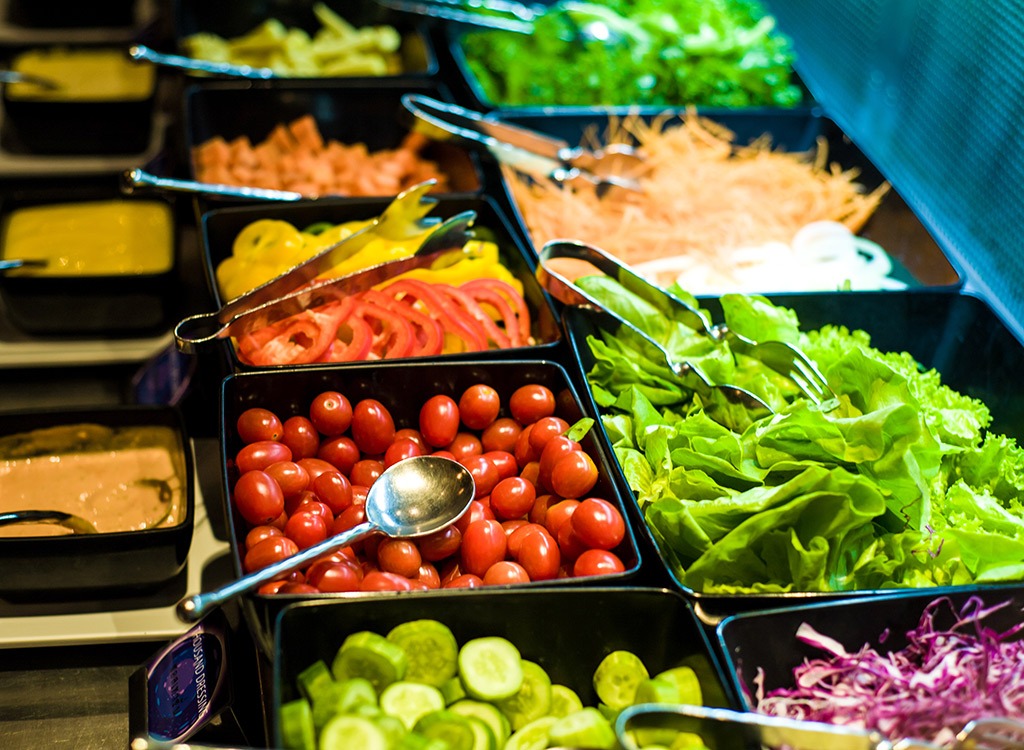
Just like adding extra fats is a tempting way to pack a flavorful punch into your dinner, loading the toppings on everything from poultry to salad is a tempting and easy trap to fall into. Be wary with recipes that call for a generous sprinkle of toppings, like chicken parm, for example. By eliminating just 1/2 a cup of mozzarella cheese from the top of your chicken, you’re saving yourself 150 calories, enough to down another 3 ounces of the protein-packed chicken itself. Opt for part-skim cheeses and fresh tomatoes rather than sugary pre-packaged tomato sauce for a much healthier version of this classic comfort food. Same goes for the toppings bar at the local salad joint. Go easy on the cheese, nuts, and croutons or you’ll have a heavy calorie load that outweighs any of the health benefits from those smothered veggies.
Mistake: Overcooking Your Veggies
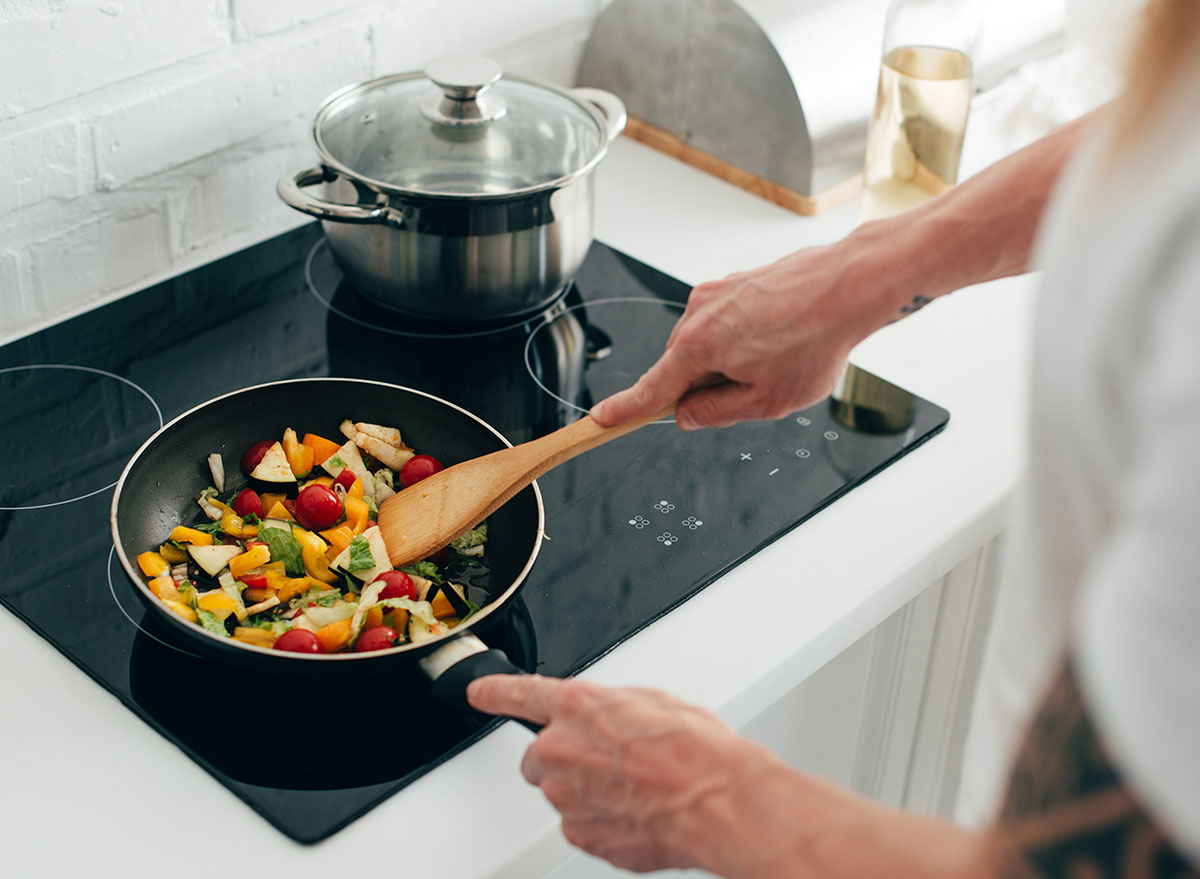
Just like mom said, getting your daily dose of vegetables is an important part of any healthful meal. Unfortunately, we tend to think of veggies as a healthy choice, no matter how they appear on our plates. Remember: how you get them is also important. Many studies show that overcooking vegetables can actually break down the nutrients, making them significantly less healthful than raw ones. If you’re making the effort to pile your dinner high with the green stuff, make sure you’re getting all the benefits! Vitamins can degrade during an extended cooking process. Instead of boiling your broccoli, try tossing it in the microwave to warm it up, a technique that has been shown to keep some of those good vitamins and nutrients in. Before you do, though, check to see if you’re using the right container.
Mistake: Blasting Your Food in Plastic
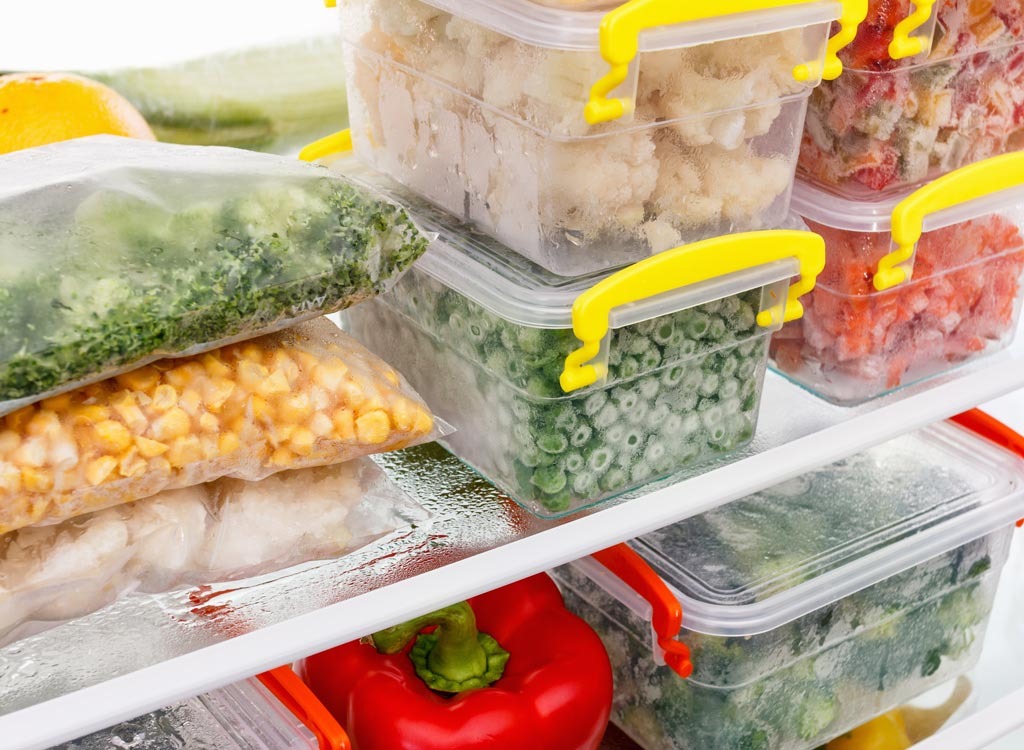
Simply put, by microwaving food in some plastic containers, you could be exposing yourself to dangerous chemicals. Before you toss out all your containers, you should know that the FDA has approved some as safe; these plastic containers are clearly marked, so be sure to check before using one. As Harvard Medical School explains, non-FDA approved plastic containers such as take-out boxes and water bottles have the potential to leak the plasticizers, or plastics, into the food.
Most particularly, fatty foods like steak and cheese can increase this process with a softening agent called “diethylhexyl adipate,” which encourages those nasty plastics to leak out of the container and your food. If you’re unsure if your plastic container has been approved as safe to microwave, transfer your dinner to a plate before zapping it. Ok, ok this one doesn’t make you fat, but it’s both terrifying and unappetizing.
